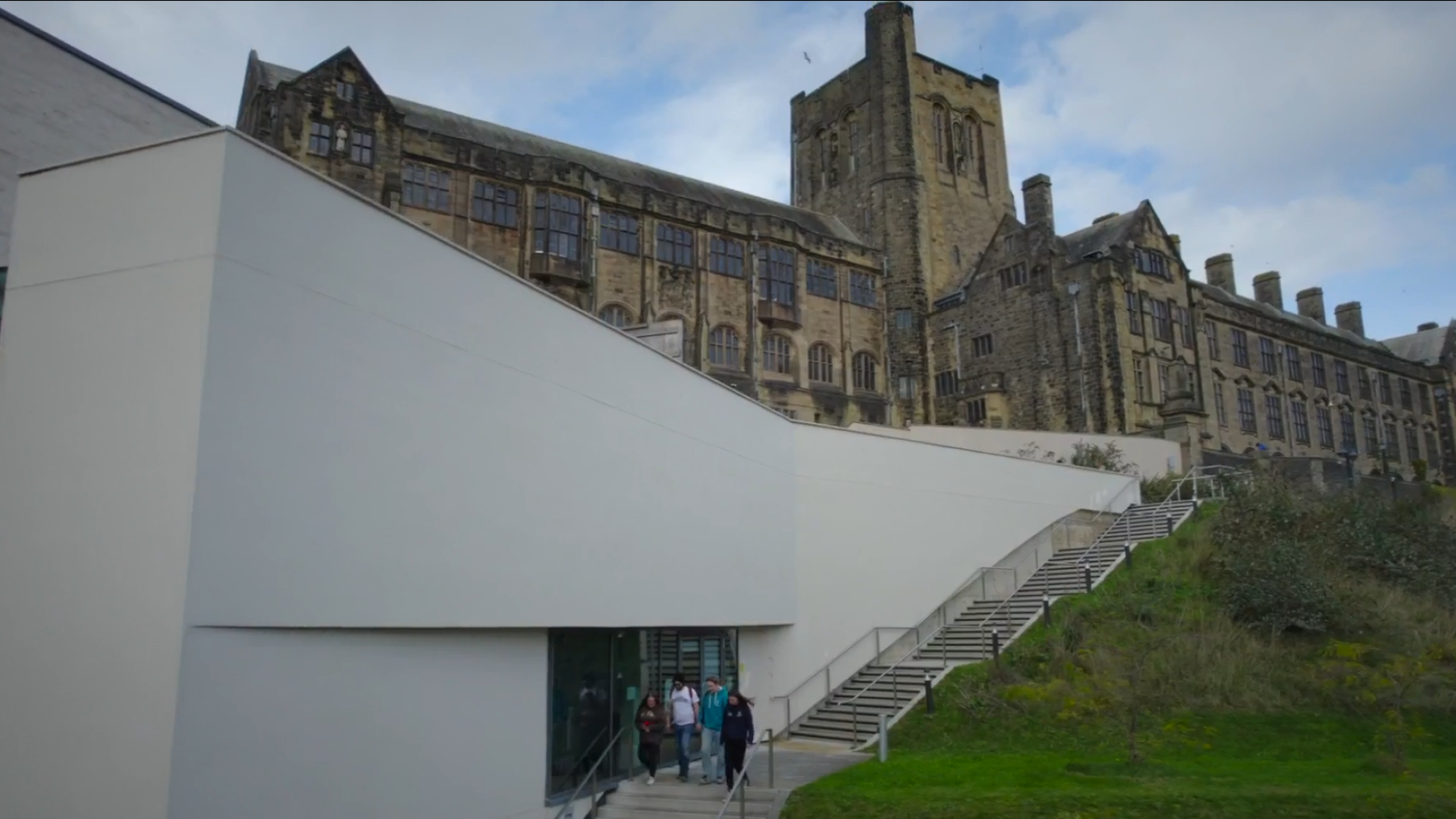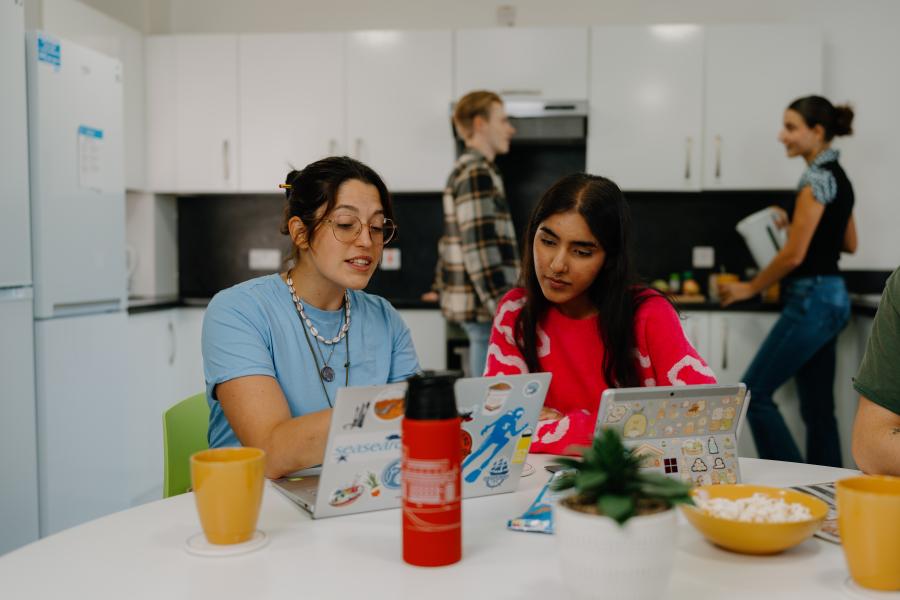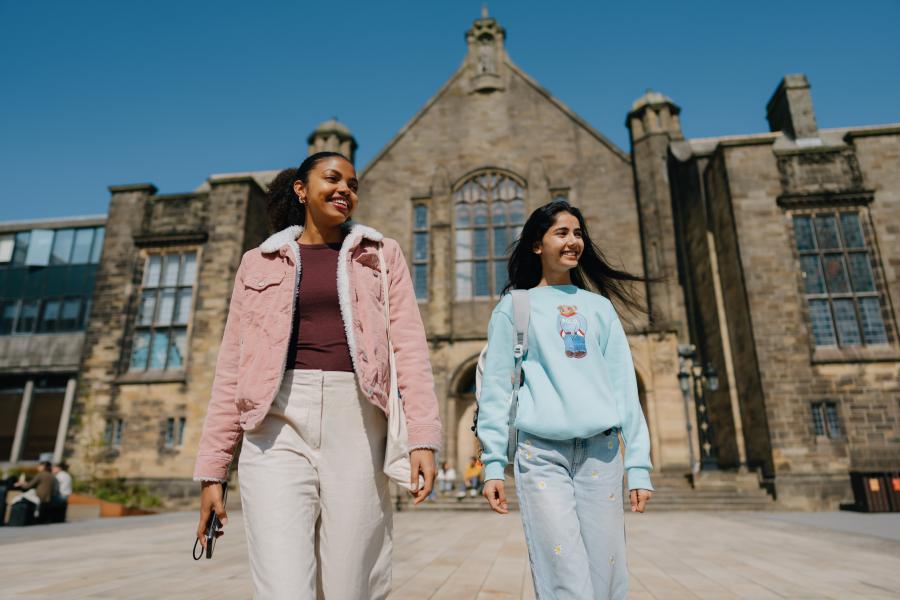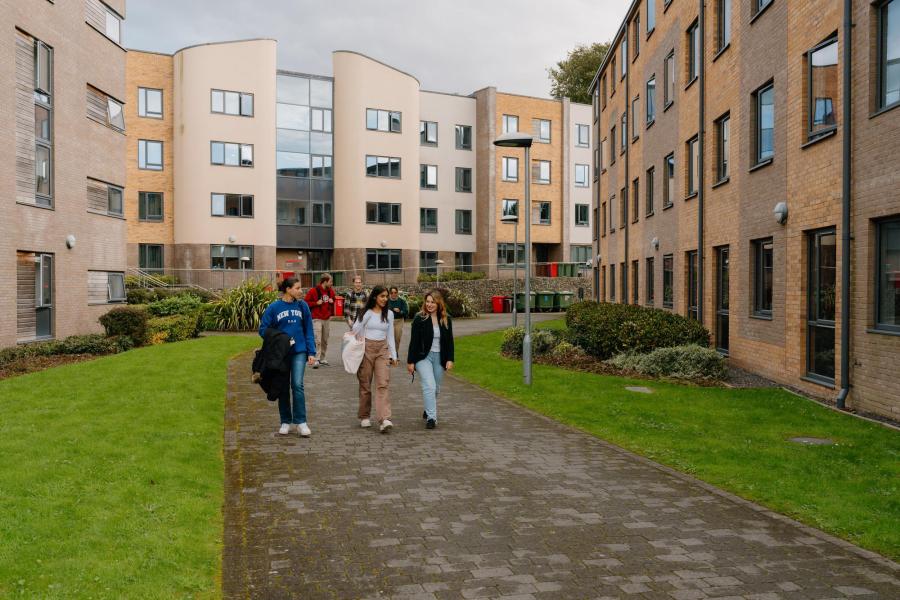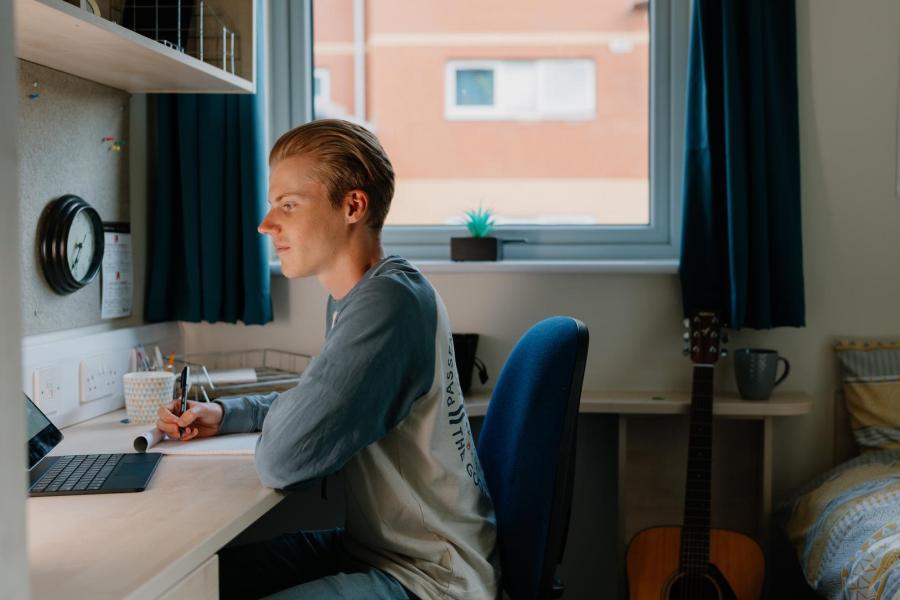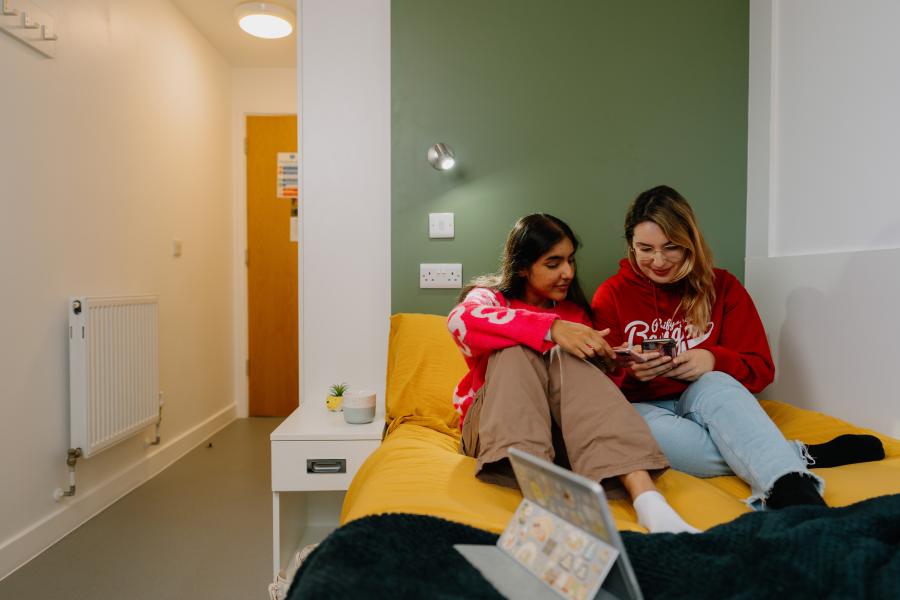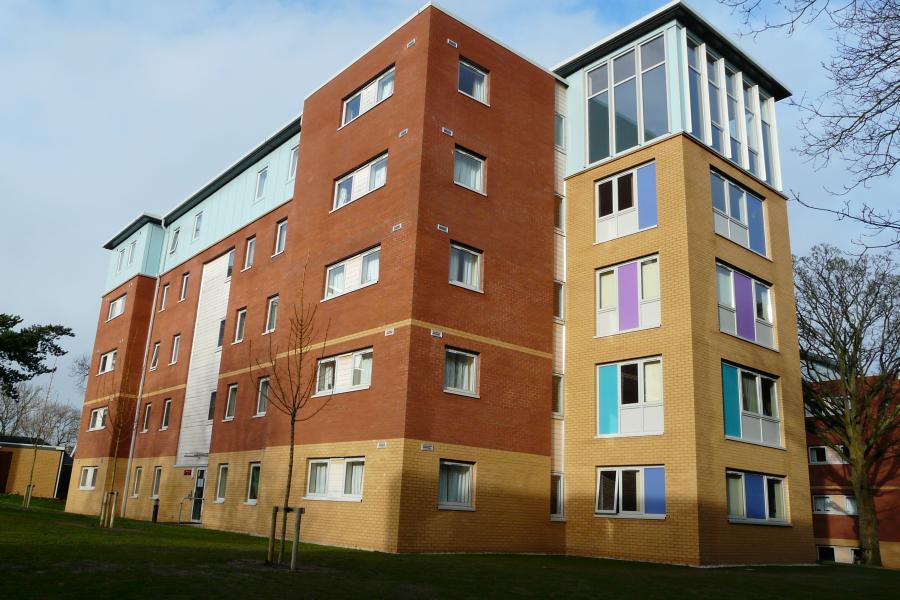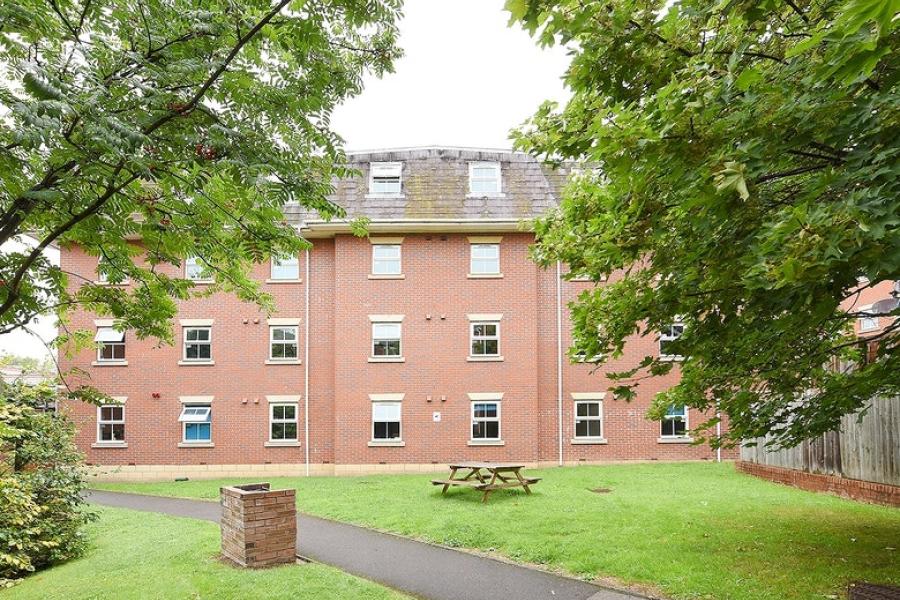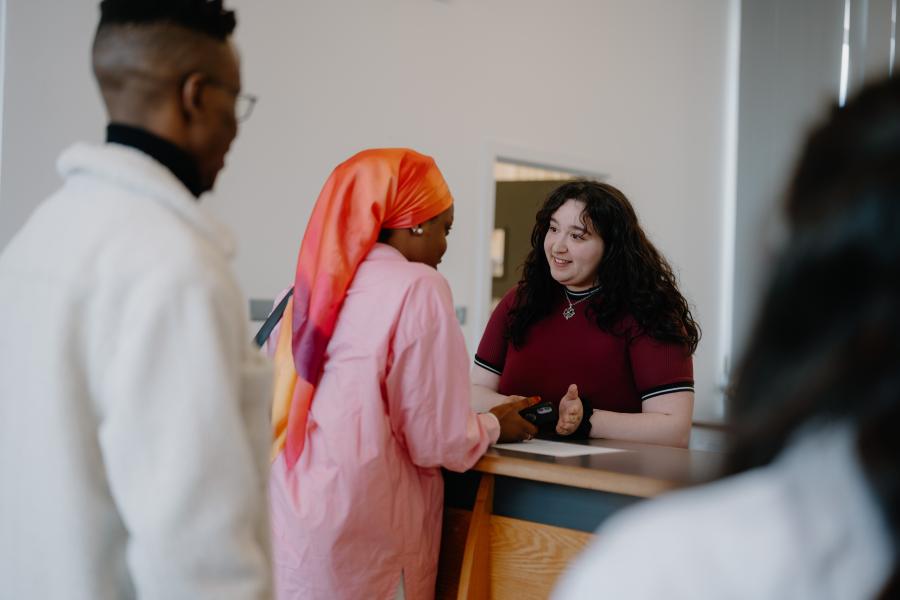Explore our campus and courses at an Open Day
View all our courses in our Pocket Prospectus
What Next?
With so much to keep track of during your young person's application process, things can quickly become complicated. Here are some key upcoming dates to help you stay on top of everything.
2025 entry
Clearing begins on 5 July 2025 and provides an opportunity for students to apply for a place at bangor University in September 2025.
Once a young person accepts their offer, they’re eager to learn more – about their course, their classmates, and who they’ll be living with. Campus Connect helps them do just that. They’ll receive an email with a link to join.
2026 Entry
If your young person is interested in Bangor University in 2026, then a great place to start is to order a pocket prospectus. You can view the pocket prospectus online or get it delivered.
If you're interested in undergraduate study, get a real insight into university life by coming along to an Open Day. We can't wait to welcome you to one of our 5 Open Days thoughout the year.
To apply for an undergraduate place at university prospective students need to apply through UCAS (Universities and Colleges Admissions Service) who will then pass on your application to your chosen universities.
They’ll be able to choose up to five courses, but remember that the same application form will go to each choice. Bangor University's UCAS code is B06.
The application deadline for medicine is 15 October 2025.
The equal consideration date for all other undergraduate applications is 14 January 2026. You will still be able to apply for 2026 entry after this date.
Top 5 Reasons to Choose Bangor University
We pride ourselves on the excellence of our teaching, which puts us amongst the finest universities in the UK for teaching experience.
With many work experience and placement opportunities, a degree at Bangor University will get your young person on the path to the career of their choice.
When we ask our students why they chose Bangor, one answer comes up time and time again: the location. Situated in one of the most beautiful parts of the UK, Bangor offers breathtaking scenery that provides a unique backdrop to university life. With excellent train links, it's easy to travel to and from the university, yet Bangor's charm lies in its surroundings. Nestled between the mountains and the sea, the stunning landscapes offer endless opportunities for adventure, from hiking and paddleboarding to simply enjoying the views.
As a smaller city, there’s a real sense of community at Bangor. Students quickly form close friendships and build strong connections, making it an incredibly welcoming and supportive environment.
From the moment your young person arrives, they'll have dedicated support to help them settle in and navigate any challenges, thanks to our on-site team of student mentors and senior wardens. To ensure they feel safe and secure, our halls are monitored by 24/7 security staff, offering extra peace of mind. They'll also be part of a vibrant community, with fun events and activities organized by the Campus Life team, making it easy to create lasting friendships from day one.
Student life at Bangor is as varied as it is vibrant, with something to suit everyone. Bangor’s location allows students to step right into nature, with many of our Clubs and Societies making the most of the stunning surroundings for outdoor activities and adventures. This is perfect for students who love the great outdoors, or even those who don't even know they like it yet.
The nightlife at Bangor is thriving, a close-knit community makes a night out both welcoming and memorable - whether you're enjoying an open mic night, a cosy pub or dancing the night away with friends.
For those who prefer a quieter social scene, Bangor offers a range of options, including relaxed, sober socials with a lot of Societies that cater to students looking for a more peaceful evening.
Any student can benefit from our exceptional range of opportunities.
We strive to break down barriers so every student can be their true self.
No matter their journey, students will find a welcoming and supportive community at Bangor University.
UCAS Deadlines
The deadline for applying for medicine (2025 entry) is October 15 2024 therefore applications for 2025 entry are now closed. Students will be able to enter for 2026 entry in October 2025. All students applying for medicine must ensure they have sat their UCAT exam before they apply.
We advise your young person to apply as early as possible, as we will start considering applications and making offers straight away. The initial UCAS deadline for 2025 entry is 29 January 2025. However, we welcome applications after this date. Applications received between 29 January and 30 June will continue to be forwarded to universities by UCAS and will be considered where places are still available.
Some students will find themselves in Clearing due to not receiveing the grades they expected or wanting to change their mind and others will choose to apply directly through Clearing for numerous reasons such as they did not think they wanted to go to university or that they do better in the exam results than they thought. Applications through Clearing open on 5 July 2025 for September 2025 start.
Your young person can start researching Clearing university and courses now to ensure that they have all the information they need if they find themselves in Clearing on results day.
Please note that not all courses will be available through Clearing.
Applicants can start to apply for 2026 entry in October 2025, and in the meantime are advised to order a prospectus, sign up to our mailing list and visit our Open Days.
Fees and Finance
Finding Work
Many students may need to supplement their student loans to live more comfortably, and it's understandable that parents aren't always able to provide additional financial support. Students often find work while at university and here’s our top tips on how to find work while at university.
- Finding part-time work in local shops and cafes.
- If your young person is fortunate to have a job with a chain back home, they might be able to transfer to a branch in Bangor.
- There are work opportunities within the University such as catering outlets and the Student Ambassador Scheme.
Term Time
Supporting Your Young Person at Bangor University
At Bangor University, we are committed to ensuring that every student receives the support they need to thrive academically, socially, and emotionally. We understand that university life is an exciting but often challenging transition, and that your young person may need help adjusting to new experiences. That’s why we offer a comprehensive range of student support services designed to assist them in every aspect of their university journey—from well-being and mental health support to academic guidance and career development. Our goal is to help your young person make the most of their time at Bangor, while feeling confident, safe, and supported.
Global Opportunities at Bangor University
At Bangor University, we offer your young person the opportunity of a lifetime through our study and work abroad programmes. Many of our degree courses provide the flexibility to include a year abroad or a placement year, allowing students to immerse themselves in another culture and enhance their academic experience. Importantly, they don’t have to make this decision before applying—they can explore these opportunities once they’ve started their course.
Students' Union
The Students' Union is a vital part of student life at Bangor University, acting as the voice of the student body and offering a wide range of activities and support. Known as Undeb Bangor (with "Undeb" meaning "union" in Welsh), the Students' Union is open to all Bangor students. It is led by elected student representatives who work to enhance the overall student experience.
A team of elected Sabbatical Officers (Sabbs) ensures that students' voices are heard and that activities and initiatives are developed in response to student needs. They are supported by professional staff who assist in running campaigns, enacting policies, and collaborating with the University to improve the student experience. The Students' Union manages various aspects of student life, including Sports Clubs, Societies, Volunteering Projects, and student representation through Course Reps and Student Networks. It also runs the Welsh Union (UMCB), which promotes Welsh culture and language. Through these opportunities, students can discover new hobbies, meet like-minded individuals, enhance their employability, and make a positive impact on the community. If your child ever feels something needs to change or has ideas to improve their time at Bangor, the Students’ Union is there to listen and provide support.
Frequently Asked Questions
Here you will find answers to frequently asked questions. Like other popular internet forums we use the shorthand 'YP' to refer to a young person.
Your young person is free to choose which practice to register with, and, of course, if they are already living in the area they may choose to remain registered with their current practice. We recommend they complete their registration as soon as possible after their arrival. Bodnant Medical Centre is located very close to Ffriddoedd Village.
https://bodnantmedicalcentre.co.uk
For more general health information, please visit our General Health page
TBC
Bangor University has halls allocated for returning students which offer a high and safe standard of living. Some students choose to live in private accommodation in their second and third year and the University recommends using Bangor Studentpad; Bangor University's own website dedicated to help students find private accommodation. Studentpad.co.uk is the university's official platform for finding privately rented housing registered with the University. All landlords on Bangor Studentpad adhere to strict conditions to ensure quality and safety. The website offers impartial advice, a wide range of properties, and essential resources, such as tenancy guides, housing checklists, and information on avoiding rental fraud.
Additionally, we provide links to external safety resources, including gas and electrical safety, fire prevention, and tenant rights under the Renting Homes (Wales) Act. Our Student Services, Halls Office, and Money Support Unit are also available to offer guidance and support. By using these resources, you can make informed decisions and enjoy a safe, comfortable experience in private accommodation.
Helping your YP prepare for independent living is all about building confidence and practical skills. Encourage them to learn essential life skills such as budgeting, cooking, laundry, and time management. Discuss managing bills, and handling responsibilities like cleaning and grocery shopping.
It’s also important to talk about emotional preparation, such as dealing with homesickness, building a support network, and maintaining their wellbeing. Suggest they explore resources offered by the University, like Student Services and Money Support Unit, for extra guidance.
By fostering independence and providing reassurance, you can help them feel confident and ready to embrace their new responsibilities.
We place a high priority on caring for and supporting our students. We want to help them thrive in all aspects of their time here.
From Welcome Week onwards, they'll be given as much help and support as possible with health and welfare matters as well as their academic work.
- The Peer Guide scheme and the Personal Tutor system mean that there is always another student or academic member of staff that your YP can turn to. Peer Guides are second and third year students who are trained to help new students settle-in to university life. Every student is assigned a Personal Tutor, who is a member of staff in an academic school.
- Student Services and Administration provide a professional support service for students. The services offered include money advice, health and welfare support, advice on private housing, dyslexia support and counselling.
- There is a dedicated Disability team to provide advice and guidance on a range of disability-related matters.
- The University's Teaching and Learning Support Team offers one to one appointments, workshops and learning resources to help develop the skills needed to succeed at university. The Centre offers help with academic writing, maths and statistics, presentations, reading and research.
All families and YPs will have different expectations when it comes to staying in touch with loved ones, and it’s important not to compare your situation to others. Before your YP leaves for university, it’s helpful to have a conversation about communication—discussing boundaries and expectations that work for both of you. Keep in mind that these may change as your YP settles into university life, so being flexible and open to adjustments is key.
Although these methods may not work for every family, here are some things parents have found helpful:
- Set check-in dates – If you haven’t heard from your YP in a while, agree on a time to catch up. This could be a weekly or fortnightly phone call, a quick text, or a video chat.
- Use different communication methods – Some YPs prefer texting, while others may like phone calls, voice notes, or even social media messages. Finding what works best for both of you can make staying in touch easier.
- Join family group chats – A casual group chat can help keep communication open without feeling intrusive. Parents often share updates, photos, or even just a quick "How’s your day?" message.
- Send care packages or letters – A small surprise, like a handwritten note or a favourite snack, can be a thoughtful way to stay connected and show support.
- Respect their independence – While regular check-ins are great, giving your YP space to enjoy their new experiences is equally important. Let them take the lead sometimes on when and how they want to communicate.
The key is to create a balance that makes both you and your YP feel connected while respecting their newfound independence.
Different courses have varying requirements, but all of them involve an element of independent learning. This means your YP will need to take responsibility for certain aspects of their studies, such as completing assignments, undertaking formative activities, further reading and conducting research outside of timetabled sessions. During their settling-in period, they will gain a clearer understanding of the independent learning expectations for their specific course.
There are several support options in place at Bangor University to help students who encounter academic challenges. Every student is assigned a personal tutor, an academic member of staff from their school (or one of their chosen subject areas for joint honours students). Personal tutors meet with students regularly throughout their course and are a key point of contact for advice and support.
A personal tutor can assist with academic concerns such as module choices, exam worries, or difficulties meeting deadlines. They are also there to offer guidance on non-academic issues. Students are encouraged to reach out to them at any time for help.
Additionally, Bangor University provides further support through Student Services and Disability Services, ensuring comprehensive assistance for various needs.
Bangor University values student involvement in shaping the university experience and offers many opportunities for students to make their voices heard. The University hosts events where students can learn how to participate in decision-making processes, explore channels to make a meaningful impact, and develop skills in leadership, communication, and advocacy.
To ensure student needs are met, the University participates in the National Student Survey and provides opportunities to give feedback at the end of every module through evaluation forms. The Students' Union plays a vital role in amplifying the student voice, with a dedicated department that includes the Course Rep system, Student Networks, and Student Forums. The SU also has a VP for Education who represents the student body and regularly runs initiatives, such as social media campaigns and surveys, to gather feedback.
As you would expect from a university that places great emphasis on student support, Bangor is keen to offer extra help to students. Bangor University offers a range of bursaries and scholarships to new and returning students.
The bursaries and scholarships page provides information on all bursaries and scholarships, including the Merit Scholarships for those who excel in the annual Entrance Scholarships.
For those who find themselves in need of financial support during their time at Bangor University, the Money Support Unit is service for all students. The Money Support Unit is part of the Student Support Team, and the experienced members of staff can provide advice, information and guidance on all aspects of student funding.
Student finance is usually paid in three instalments, directly into your bank account:
- After registration
- Early January
- After Easter
We know that waiting to hear about an application can be difficult and we do our best to make decisions as quickly as possible.
We aim to make a decision within two to five weeks of receiving an application, often sooner. The amount of time this can take can depend on:
- when your YP applied (we typically receive a high number of applications and it can get very busy at certain times of year)
- the course they have applied to.
To assess an application, our admissions team will consider the following in detail:
- grades
- personal statement
- academic reference
For some courses there may also be an interview requirement.
Occasionally we need further information in order to make a decision. In these situations we will always contact the applicant by email – and if we don’t hear back usually follow this up with a phone call.
If you or your YP have not heard form us and are worried, please don’t be, you can get in touch at any time.
Submitting an artificial intelligence-written (AI) personal statement can be considered cheating, as universities expect genuine, personal work. UCAS runs checks for AI use and plagiarism, which could impact your application.
The UCAS website offers further guidance about the use of AI in order to check your work and this page should be read carefully before considering the use of AI in your personal statements.
Transferring from another university can be done in a few different ways. We would always recommend contacting our Admission Team in the first instance as they will be best placed to advise on what to do. We will be able to discuss options and provide support though the process.
In many cases it will be necessary to complete an application and to provide proof that the student has fully withdrawn from their current course of study.
If your YP wants to change to another course at Bangor University they would need to approach the Director of the course they wish to transfer to, whether it is within their current School or another one. This is to see if there are places on that course and whether they are prepared to accept them. Once this process has been followed and the Director agrees to it, your YP will have to complete a Change of Degree Request via the Request Centre on MyBangor (this is a portal they will get access to once they are a student here where they will be able to manage important information.
Changing course is not normally permitted once 4 weeks of semester one has elapsed.
We guarantee accommodation to new undergraduate applicants that:
- Apply for a full-time course starting in September.
- Apply for a course based at our Bangor campus.
- Choose Bangor University as their Firm Choice (International applicants who applied directly to the University need to hold an offer letter, Conditional or Unconditional, from the University).
- Apply for a place in Halls by 31 July.
Please note that our undergraduate accommodation is primarily single-occupancy, en-suite, and self-catered. If your young person applies for a place in halls before the 31st of July deadline, they’ll have the opportunity to choose their preferred room, subject to availability at the time of booking.
We’ll email your young person when our booking system opens at the end of January, giving them the opportunity to choose ytheir preferred room through our online booking system.
We guarantee accommodation to new postgraduate applicants that:
- Apply for a full-time course starting in September.
- Apply for a course based at our Bangor campus.
- Achieve unconditional status before the 7 August (International applicants holding a conditional offer letter can also apply).
- Apply for a place in Halls by the 7 August.
Please note, our postgraduate accommodation is primarily single-occupancy, en-suite, studios and townhouses. If your young person applies for a place in halls before the 7th of August deadline,they’ll have the opportunity to choose their preferred room, subject to availability at the time of booking.
We’ll email your young person when our booking system opens at the end of January, giving them the opportunity to choose their preferred room through our online booking system.
October: The deadline for applying for medicine (2025 entry) is October 15 2024 therefore applications for 2025 entry are now closed. Students will be able to enter for 2026 entry in October 2025. All students applying for medicine must ensure they have sat their UCAT exam before they apply.
October - January: This is the main window for application and most prospective students will apply during this window. We advise your young person to apply as early as possible, as we will start considering applications and making offers straight away. The initial UCAS deadline for 2025 entry is 29 January 2025.
January - June: Applications can be submitted between 29 January and 30 June (2025) to UCAS and will be forwarded to us. Offers will still be given where places are still available.
July - September: Some students will choose to apply directly through Clearing for numerous reasons such as they did not think they wanted to go to university or that they do better in the exam results than they thought. Applications through Clearing open on 5 July 2025 for September 2025 start. Please note that not all courses will be available through Clearing.
There are plenty of socialising options for drinkers and non-drinkers at Bangor University. There are numerus events during Welcome Week that are not centred around the consumption of alcohol, this includes events by Campus Life and the Students' Union. Throughout the academic year, there are plenty of events hosted by Campus Life as well as Clubs and Societies that are considered social sobers.
The nightlife at Bangor is thriving, a close-knit community makes a night out both welcoming and memorable - whether you're enjoying an open mic night, a cozy pub or dancing the night away with friends.
Bangor University has an official student nightclub, Academi, providing great night life and social scene, with free entry for students living in University Halls, discounted entry for sponsored team members plus inexpensive offers at the bar, it’s a great place to meet and hang out with friends.
There are pubs all over Bangor that are very popular with students, from independent bars and quirky chain pubs to big-name venues and sports bars perfect for catching the latest game.
There are three main university vacations, 3 weeks over the Christmas period, 3 weeks over the Easter period and around 4 months over the summer. If your young person is living in halls they do not have to move their belongings out during the Christmas and Easter vacations, they will however have to move out during the Summer vacation.
There are no official university activities during this time but departments such as Campus Life and the Students' Union occasionally put on events to ensure that anyone still in Bangor during the vacation are not lonely. Some students opt to stay behind during this time and they can usually find other students who have also opted to stay behind.
You are more than welcome to visit your child anytime, but here are some top tips for when you do.
Make sure they have time to spend with you during your visit. Does it clash with their lectures? Have they got a night out planned? Have they got an extra curricular activity planned
Your YP is permitted one overnight guest up to a maximum of 2 days in any period of 7 days, on the terms that they are registered and their flatmates and neighbours have been consulted with. However, staying on the floor of student bedroom might not be the ideal getaway for a parent. If you wish to stay elsewhere in North Wales during your visit you can contact North Wales Tourism on +44 (0) 1492 531731 or www.nwt.co.uk for details of Wales Tourist Board approved accommodation.
Key terms explained
A conditional offer is a university's offer of admission that is dependent on the student meeting specific entry requirements, such as achieving certain exam results (e.g., A-levels or equivalent). If the conditions are met, the student’s place at the university is confirmed.
An unconditional offer is an offer of admission from a university that is not dependent on further exam results or conditions. The student has already met all the academic and entry requirements for their course.
The firm choice is the student's top preference among the universities they've received offers from. If the student meets the conditions of their firm choice, they will automatically be enrolled in that university.
The insurance choice is the student's backup university, selected in case they don’t meet the requirements for their firm choice. The conditions of the insurance choice are usually lower than those of the firm choice.
A UCAS ID is a unique identification number assigned to each student when they register with UCAS (the Universities and Colleges Admissions Service). It helps universities and UCAS track the student’s application throughout the admissions process.
The UCAS Hub is an online platform where students manage their university applications, track offers, reply to offers, and view deadlines. It's also where they can find information about their chosen courses and universities.
Deferred entry refers to the option of delaying the start of a university course by a year after receiving an offer. This is often used by students who want to take a gap year for travel, work, or personal development.
A Foundation Year is an introductory program designed for students who do not meet the standard entry requirements for a degree-level course or for those returning to education after time away from study. It provides a strong foundation in the subject area, helping students gain the knowledge, skills, and confidence needed for university-level study. After successfully completing the Foundation Year, students progress directly into the first year of their chosen degree course.
An undergraduate is a student who is studying for their first university degree, typically a bachelor’s degree (BA, BSc, etc.).
A postgraduate is a student who has already completed an undergraduate degree and is now studying for an advanced degree, such as a master’s (MA, MSc) or a PhD.
An integrated master’s is a degree program that combines undergraduate and postgraduate study into one continuous course. It typically lasts four or five years, leading to a master’s qualification (e.g., MEng or MSci).
An accredited course is a university program that has been officially recognised by a professional body. This means the course meets the standards required for students to enter a particular profession after graduation, such as engineering, law, or medicine.
University accommodation refers to housing provided by the university for students.
A contextual offer takes into account the student’s personal circumstances or background, such as socio-economic factors, the school they attended, or any personal challenges they have faced. These offers may have lower entry requirements to support students who have had additional barriers to education.
A prospective student is someone who is considering applying to a university or is in the process of researching or visiting universities before making an application.
An offer holder is a student who has received an offer of a place at a university, either conditional or unconditional but has not yet accepted or started their course.
Clearing is the process universities use to fill any remaining places on their courses after the main application cycle. It typically takes place after exam results are released. Students who didn’t meet the conditions of their original offers, or who didn’t receive offers, or did better than expected can apply to other universities during clearing to find available courses. Some students can apply directly through Clearing.
Most universities offer clubs, societies, and volunteering projects, though the terminology may vary. At Bangor University, Clubs specifically refer to sports clubs and are part of the Athletic Union within the Students' Union. Societies encompass a wide range of groups centred around shared interests, hobbies, beliefs, or cultures. Volunteering Projects at Bangor are student-led initiatives that contribute to the local community and environment, while also providing students with opportunities to enhance their employability skills and give back to society.

